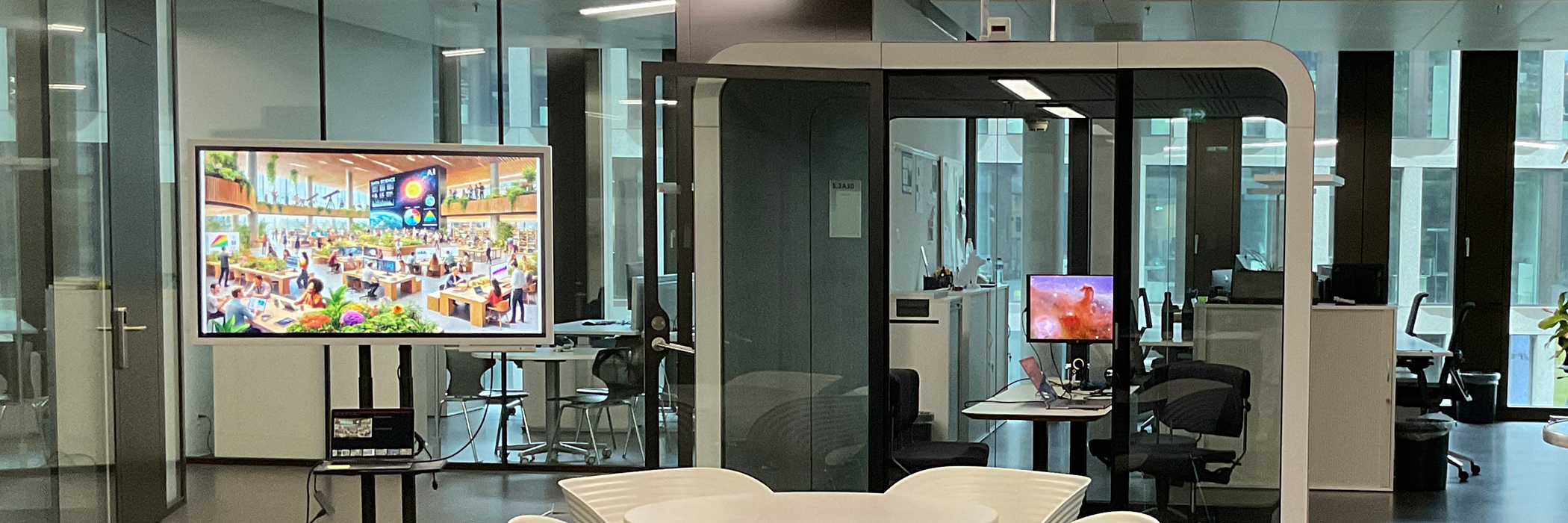Knowledge Assistant – AI-based information retrieval tool
AI can organise and retrieve information – at least in theory. In practice, turning corporate data into a user-friendly resource is a big challenge. Our collaboration project tackles the challenge.
Many of us have used chatbots to answer generic questions or to scan uploaded documents for useful details. Generative artificial intelligence offers vast theoretical possibilities, but reality often falls short. Are you looking for reliable and up-to-date facts? Is your data spread across different places? Does it include text, images, and charts, all saved in multiple file formats? Is it written in various languages? Do you need it to be filtered based on your work role and confidentiality level? This is what a typical corporate environment looks like, and publicly available tools won’t cover these needs.
We want to bridge the gap between AI’s theoretical capabilities and its real-life applications in our collaboration with Primeo Energie. Our partner is a cooperative infrastructure company that offers energy solutions to private customers, businesses, as well as the public sector. The company was founded in 1897, has offices in Switzerland and France, and employs over 700 people. This means Primeo Energie has a treasure trove of accumulated knowledge, but the company needs better tools to use it all effectively.
During the project, we will develop an AI-based ‘Knowledge Assistant’ to enable efficient information retrieval. Primeo Energie brings the domain knowledge and development environment, while our institute comes equipped with expertise in AI methods. We use Retrieval-Augmented Generation (RAG) to answer user questions in a chat with domain and company-specific knowledge. First, we parse and preprocess documents to extract meaningful text segments. Then we embed these segments into a vector space – a way of representing their meaning as numbers – so we can use similarity search to quickly find other segments with related content. When a user submits a question, our RAG solution finds relevant passages which are reranked to prioritise those that best match the context. The system then delivers these passages to a large language model, which generates a fact-based, coherent response. A final evaluation ensures quality and reliability of the answers, minimising hallucinations and maximising utility.
We have defined three goals for this project. First, we want to give Primeo Energie’s employees easy access to company-relevant knowledge with a free-text search that is similar to ChatGPT. Second, we plan to build intelligent, knowledge-based expert networks by linking content to the right Primeo experts as contact points – that is, colleagues others can turn to for more information. Third, the RAG solution can be used to improve Primeo Energie’s project portfolio by identifying synergies and similarities across projects through context-based comparisons.
As a company-financed collaboration, we have a pragmatic approach with tangible expectations. Yet Primeo Energie has proven to be open to experimentation: our researchers have ample freedom to test and find the best, novel methods to solve problems. As an applied science institute, we work with the latest technologies and ideas to turn them into practical use cases. Our collaboration with Primeo Energie is a great example of industry needs meeting academic capabilities.
Information
Research field | Natural Language Processing, Retrieval Augmented Generation |
School / Institute | School of Computer Science / FHNW Institute for Data Science |
Partner | |
Project timeline | October 2024 - September 2025 |
Project budget | CHF 80'000.- (Company-funded) |
Project lead | Daniel Perruchoud (FHNW Institute for Data Science) |
Project team | Chantal Zwick (FHNW Institute for Data Science) Joseph Weibel (FHNW Institute for Data Science) Timo Kropp (Primeo Energie) Olga Frost (Primeo Energie) Timo Weiser (Codify) |
More information | Daniel Perruchoud (FHNW Institute for Data Science) |

